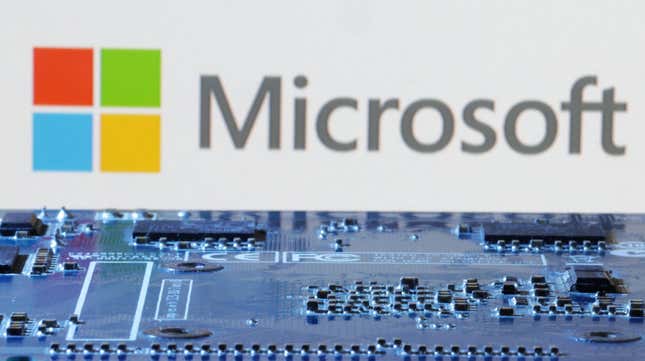
Microsoft has announced that it’s expanding its Copilot service to consumers and small businesses in an effort to boost sales of the AI assistant. Subscribers will be able to use Copilot across Word, Excel, and Outlook—all for $20 a month.
Users will also have access to OpenAI’s GPT-4 model for faster performance, Microsoft said. The company, which has a partnership with OpenAI, plans to roll out a feature where users can build their own Copilot GPT, a chatbot customized for a specific purpose.
In a blog post, Microsoft noted that 40% of the Fortune 100 participated in its early access program for Copilot and that “thousands of people” have been using its AI-powered tool. For large businesses, which got general access to 365 Copilot in November, the company had learned that using AI to summarize meetings is a popular use case, said consumer chief marketing officer Yusuf Mehdi. Microsoft expects to learn how small businesses and individuals are using its AI tools, Mehdi added.
Copilot has a lot in common with ChatGPT
Microsoft’s Copilot shares similar features with GPT-4, which comes at the same starting price and helps users take notes, write presentations, and create tables. To differentiate the company’s AI products, Mehdi said having access to AI inside Microsoft 365 is a big advantage because users enjoy better creation, editing, and presentation capabilities.
The company sees Copilot and ChatGPT as coexisting, for now at least. “It’s a win-win because we’re growing the market together,” Mehdi said.
The AI assistant expansion to more users comes as Microsoft (briefly) overtook Apple last week as the world’s most valuable company, signaling confidence in the former, which has been leading the generative AI industry.